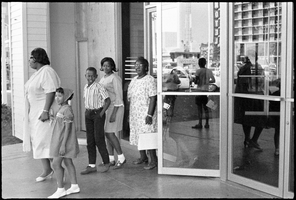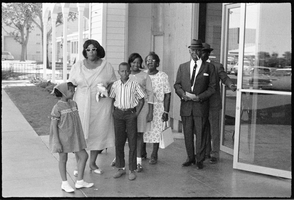Search the Special Collections and Archives Portal
Search Results
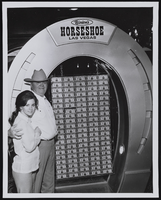
Photograph of Benny and Becky Binion posing in front of the Binion's Horseshoe, Las Vegas, Nevada, circa 1969
Date
Archival Collection
Description
Benny Binion and his daughter Becky posing next to the Million Dollar Horseshoe at the Horseshoe Casino. (c. 1969). Stamp on back of photo: "Las Vegas News Bureau Las Vegas, Nevada Convention Center 18165".
Image
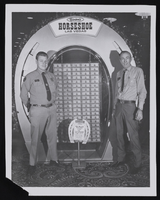
Photograph of two officers in front of the Binion's Horseshoe, Las Vegas, Nevada, approximately 1940 to 1985
Date
Archival Collection
Description
Two Horseshoe Club security guards pose in front of the million dollar horseshow display.
Image
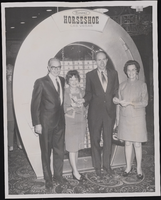
Photograph of Jack Binion and customers in front of Binion's Horseshoe, Las Vegas, Nevada, 1970 February
Date
Archival Collection
Description
Jack Binion (2nd from right) awarding cash prizes to customers in his hotel. They are standing in front of the million dollar display at the Horseshoe. (February 1970)
Image
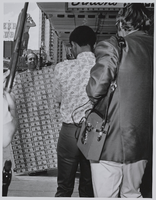
Photograph of Jack Binion posing for photos holding the million dollar display, Las Vegas, Nevada, 1971
Date
Archival Collection
Description
Photographers film Jack Binion holding a million dollars. It was a display at his Horseshoe Casino, Las Vegas. (c. 1971). Stamp on back of photo: "Las Vegas News Bureau Las Vegas, Nevada Convention Center 22333".
Image
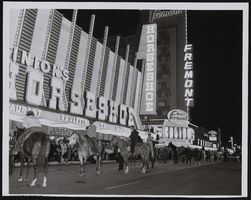
Photograph of a line of horses outside of the Horseshoe Casino, Las Vegas (Nev.), April 17, 1968
Date
Archival Collection
Description
Men sit on horseback in a line outside of the Horseshoe Casino for some type of special event. Spectators line the sidewalks and watch the riders. For other images of the same event, see pho026119 & pho026121.
Image

Photograph of a display of money, Las Vegas (Nev.)
Date
Archival Collection
Description
Binion's Horseshoe Million Dollar display. Stamp on back of photo: "Allen Photographers. Inc. Post Office box 14667 Las Vegas, Nevada 89114".
Image
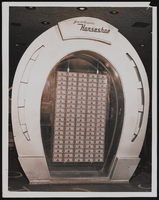
Photograph of the Binion's Horseshoe display, Las Vegas, Nevada, 1952 to 1964
Date
Archival Collection
Description
Million Dollar display with sign - "Joe W. Brown's Horseshoe". (c. 1952-1964). Stamped on back of photo: "Las Vegas News Bureau Las Vegas, Nev. - P. O. Box 28
Image
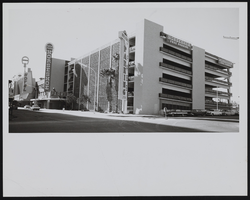
Photograph of the parking garage of the casino, Las Vegas (Nev.), December 5, 1962
Date
Archival Collection
Description
Binion's Horseshoe parking garage - Dec. 5, 1962. Stamp on back of photo: "Las Vegas News Bureau Las Vegas, Nevada Convention Center".
Image
